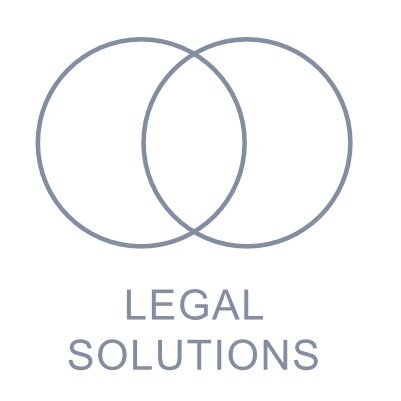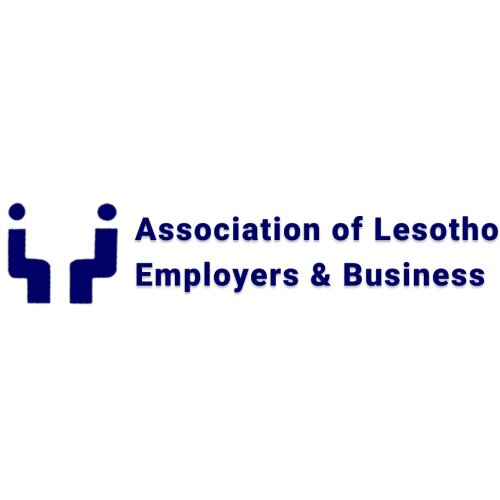Best Renewable & Alternative Energy Lawyers in Lesotho
Share your needs with us, get contacted by law firms.
Free. Takes 2 min.
Or refine your search by selecting a city:
List of the best lawyers in Lesotho
About Renewable & Alternative Energy Law in Lesotho
Renewable and alternative energy law in Lesotho is an emerging field that deals with the legal aspects of generating, distributing, and consuming energy from sustainable sources. Lesotho is a country with abundant water resources, making hydropower a significant contributor to its energy mix. The nation is actively exploring other renewable options such as solar, wind, and bioenergy to improve energy access, promote sustainability, and decrease reliance on imported fossil fuels. The government’s commitment to clean energy is demonstrated through national policies, international agreements, and partnerships that encourage investment, innovation, and community participation in the renewable energy sector.
Why You May Need a Lawyer
Navigating the renewable and alternative energy sector in Lesotho can be complex. Here are some common situations where legal expertise is valuable:
- Securing permits and licenses for building renewable energy facilities.
- Negotiating power purchase agreements with government or private off-takers.
- Understanding tariff regimes and feed-in tariffs set by regulators.
- Handling land acquisition or lease agreements for project sites.
- Addressing environmental compliance and obtaining impact assessment approvals.
- Protecting intellectual property associated with new energy technologies or innovations.
- Resolving disputes among stakeholders, including joint venture partners or local communities.
- Complying with tax incentives or benefit schemes targeting renewable energy investments.
- Understanding cross-border energy trade regulations and international agreements involving Lesotho.
A lawyer with experience in renewable and alternative energy law can help you efficiently address these challenges, prevent costly mistakes, and protect your interests.
Local Laws Overview
Lesotho has established several policies and legal instruments relevant to renewable and alternative energy. Below are key elements:
- Energy Policy of Lesotho: Sets out national strategies to encourage renewable development, improve access to electricity, and promote energy efficiency.
- Electricity and Water Authority (LEWA): Serves as the main regulatory body overseeing licensing, tariffs, and sectoral compliance.
- Renewable Energy Feed-in Tariff Regulations: Provides incentives for producers to supply electricity from renewable sources into the national grid.
- Environmental Act: Requires that significant renewable energy projects undergo environmental and social impact assessments to ensure sustainable development.
- Lesotho Highlands Water Project Treaties: While mainly focused on water, these treaties have implications for hydropower projects and cross-border energy trade with South Africa.
- Land Act: Governs land use, allowing for the acquisition or leasing of land for renewable energy facilities under strict regulations.
Keeping pace with changes and updates in these laws is important, as the government continues to amend legislation to attract investment and meet international climate commitments.
Frequently Asked Questions
What types of renewable energy are commonly used in Lesotho?
Lesotho primarily uses hydropower. However, solar energy is increasingly popular for homes and businesses. There are also emerging interests in wind and biomass energy.
Do I need a permit to build a solar or wind energy project?
Yes, you need various permits and approvals from the Lesotho Electricity and Water Authority and possibly from environmental agencies, especially for larger projects.
What incentives are available for renewable energy investment?
Incentives may include feed-in tariffs, tax concessions, and government support for certain projects. The specific benefits depend on the scale and type of your project.
Can individuals or companies sell electricity generated from renewables back to the national grid?
Yes, Lesotho allows independent power producers to sell electricity, subject to regulatory approvals and power purchase agreements.
What role does LEWA play in renewable energy?
LEWA issues licenses, sets tariffs, enforces compliance, and ensures a transparent market for energy production and sales.
Are there specific rules for foreign investors in renewable energy?
Foreign investors are welcome, but they must comply with local laws on land acquisition, licensing, and may require partnerships with local entities depending on the project type and size.
How are environmental concerns addressed for renewable projects?
Large projects typically require environmental and social impact assessments, and must comply with mitigation and monitoring guidelines set by the Environmental Act.
Do renewable energy projects require community consultation?
Yes, especially when land use or local livelihoods may be affected. Community engagement is often part of the permitting process.
What taxes apply to renewable energy businesses?
Standard business taxes apply, with potential reliefs or exemptions for qualifying renewable projects. Tax law advice is recommended to understand current incentives.
How can disputes in renewable energy projects be resolved?
Disputes may be settled through negotiation, mediation, arbitration, or litigation in local courts or under international treaties, depending on contractual agreements.
Additional Resources
Several resources can provide guidance and support regarding renewable and alternative energy in Lesotho:
- Ministry of Energy and Meteorology - responsible for national energy policy and renewable energy initiatives.
- Lesotho Electricity and Water Authority (LEWA) - the regulatory authority for energy licensing and tariffs.
- Lesotho Electricity Company (LEC) - the primary utility company for the national grid.
- Lesotho Revenue Authority - for information related to tax incentives and customs on renewable energy equipment.
- Non-governmental organizations such as Sustainable Energy for All (SEforALL) and local organizations focused on energy and environmental advocacy.
- Legal Aid Centers and Bar Association of Lesotho for referrals to lawyers with expertise in energy law.
Next Steps
If you are considering involvement in renewable or alternative energy projects in Lesotho, follow these steps:
- Clarify your project’s scope, objectives, and specific legal needs.
- Consult with the Ministry of Energy and Meteorology or LEWA to understand the regulatory requirements.
- Seek legal advice from a lawyer experienced in renewable and alternative energy law to guide you through project planning, agreements, compliance, and risk management.
- Prepare all necessary documentation such as permits, impact assessments, and partnership contracts.
- Engage relevant community stakeholders early in the process for smoother project implementation.
- Monitor ongoing developments in legislation that may impact your project or business.
Professional legal support can help ensure compliance, successful project delivery, and protection of your interests in the evolving renewable energy sector of Lesotho.
Lawzana helps you find the best lawyers and law firms in Lesotho through a curated and pre-screened list of qualified legal professionals. Our platform offers rankings and detailed profiles of attorneys and law firms, allowing you to compare based on practice areas, including Renewable & Alternative Energy, experience, and client feedback.
Each profile includes a description of the firm's areas of practice, client reviews, team members and partners, year of establishment, spoken languages, office locations, contact information, social media presence, and any published articles or resources. Most firms on our platform speak English and are experienced in both local and international legal matters.
Get a quote from top-rated law firms in Lesotho — quickly, securely, and without unnecessary hassle.
Disclaimer:
The information provided on this page is for general informational purposes only and does not constitute legal advice. While we strive to ensure the accuracy and relevance of the content, legal information may change over time, and interpretations of the law can vary. You should always consult with a qualified legal professional for advice specific to your situation.
We disclaim all liability for actions taken or not taken based on the content of this page. If you believe any information is incorrect or outdated, please contact us, and we will review and update it where appropriate.
Browse renewable & alternative energy law firms by city in Lesotho
Refine your search by selecting a city.












